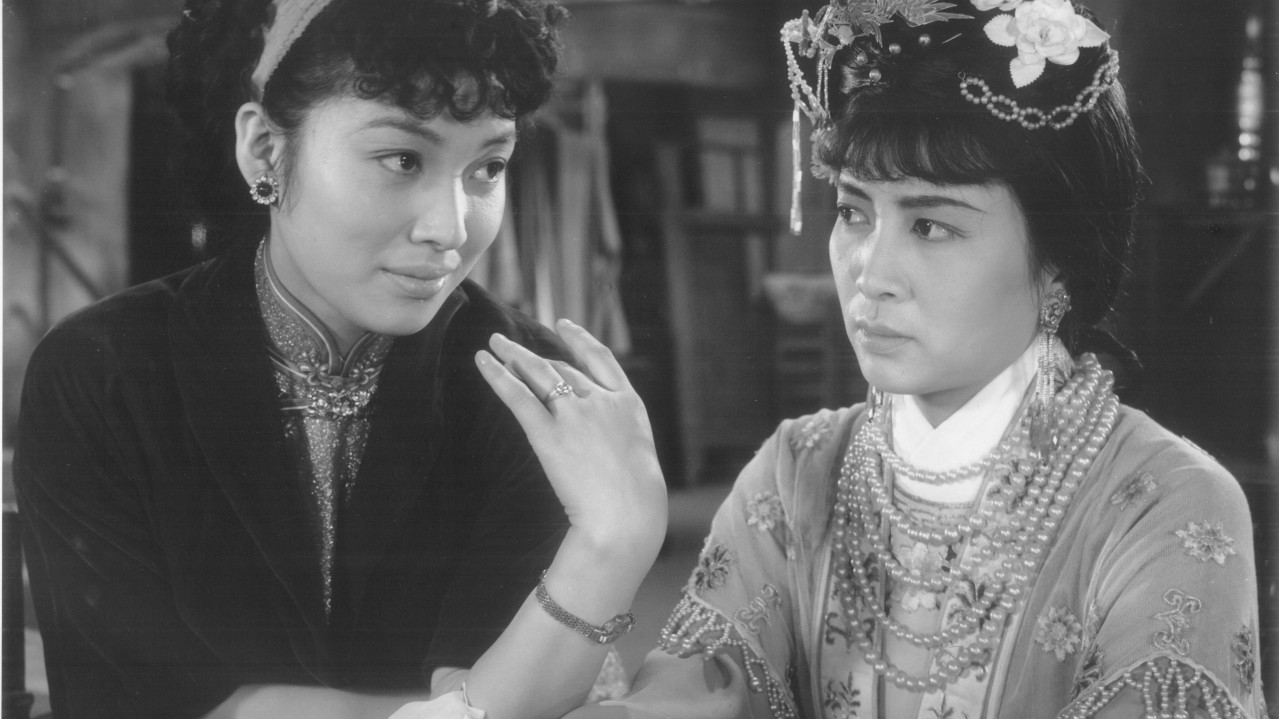
Xie Jin,
Before and After the Cultural Revolution
A celebrated filmmaker who rose to prominence in the 1950s, fell out of favor at the beginning of the Cultural Revolution, rehabilitated himself during the same period and then returned to fame and popularity, in China and abroad in the 1980s, Xie Jin (1923-2008) is one of the most remarkable artists in the history of the cinema of mainland China and, arguably, its most significant director. Yet he remains little known in the US, his earlier films unseen in this country because of the Cold War and his later films overshadowed here by the works of newer directors who, for the most part, rejected his influence.
As a young man in the 1930s, Xie studied and worked in theater, trying his hand at acting and writing. The latter skill made him a standout as a director who often wrote or co-wrote the original screenplays he filmed at a time when Chinese cinema was dominated by literary adaptations. Xie’s initial success stemmed from his ability to mix melodrama and socialist content, making his films popular both with audiences and with the Communist Party. His work could thus be said to fulfill the hopes of the progressive filmmakers in China’s prerevolutionary cinema, who had dreamed of combining the powerful popularity of Hollywood with the intellectual and political force of Soviet cinema.
His films of the 1950s and early 60s were primarily “women’s films,” focusing on female protagonists who liberated themselves from feudal oppression through revolutionary struggle on the battlefield, in the factory or on the basketball court. Whether they are sweeping epics or contemporary comedies, Xie’s films from this period reveal his eye for vivid, pictorial images, a quality that he shares with such contemporaries as King Hu, Vincente Minnelli and Luchino Visconti, all of whom combined realistically detailed mise-en-scène, fluid camera movement and striking composition within the frame.
Xie’s acclaim seemed set to reach a pinnacle with the epic Stage Sisters, but the emergence of the Cultural Revolution, during which the Communist Party sought to enforce a rigid ideological purity in all sectors of Chinese society and culture, led to the film’s being banned and to Xie being denounced for lack of rigor. He suffered a period of house arrest, during which time he was paraded to factories and schools for public denunciation, culminating in the suicide of his parents. After all filmmaking in China had been suspended for several years, the only films to be produced in the early 1970s were formulaic adaptations of revolutionary operas and a handful of other films rigidly devoted to the ideological strictures of the so-called “Gang of Four” who controlled the state during the Cultural Revolution. Xie resumed work during this time, becoming one of the preferred filmmakers of Jiang Qing, Mao’s wife, who oversaw all film production at the time.
Shortly after Mao’s death in 1976, the Cultural Revolution collapsed, and by the end of the decade, Xie was back to working with some measure of autonomy. In the early 1980s, he sought to rehabilitate himself at home and abroad by making films critical of the Cultural Revolution, while returning to his familiar mix of melodrama and socialist politics. His visual style remained more or less the same as well, although he was now more likely to shoot on location than on the soundstage and although his color palate and camera movement were both toned down in favor of a somewhat soberer realism.
He soon found his prominence challenged by the younger directors of the so-called “Fifth Generation,” including Chen Kaige and Zhang Yimou, who replaced melodrama with ambiguity and ellipsis and whose work was either more harshly critical of the Maoist past or else eschewed politics altogether. Nevertheless, in his later years, Xie directed what is now considered one of his masterpieces (Hibiscus Town), became the first mainland Chinese member of both the Academy of Motion Picture Arts and Sciences and the Director’s Guild of America, and continued to work into his seventies.
Since his death, his place in film history has been recognized by such contemporary filmmakers as Jia Zhangke and assured by the China Film Archive’s circulation of his work worldwide. The Harvard Film Archive is pleased to present this collection of Xie’s most important films, with 35mm prints from the China Film Archive and a presentation of the “digital restoration” of Stage Sisters by the Shanghai International Film Festival. – David Pendleton
This program is presented in collaboration with the Fairbank Center for Chinese Studies and the Department of East Asian Languages and Civilizations and coincides with "The Cultural Revolution and Cinema: An International Symposium" taking place on Saturday, April 16 from 9:30am to 5:30pm in CGIS South Building Room S020 at Harvard, 1730 Cambridge Street.















